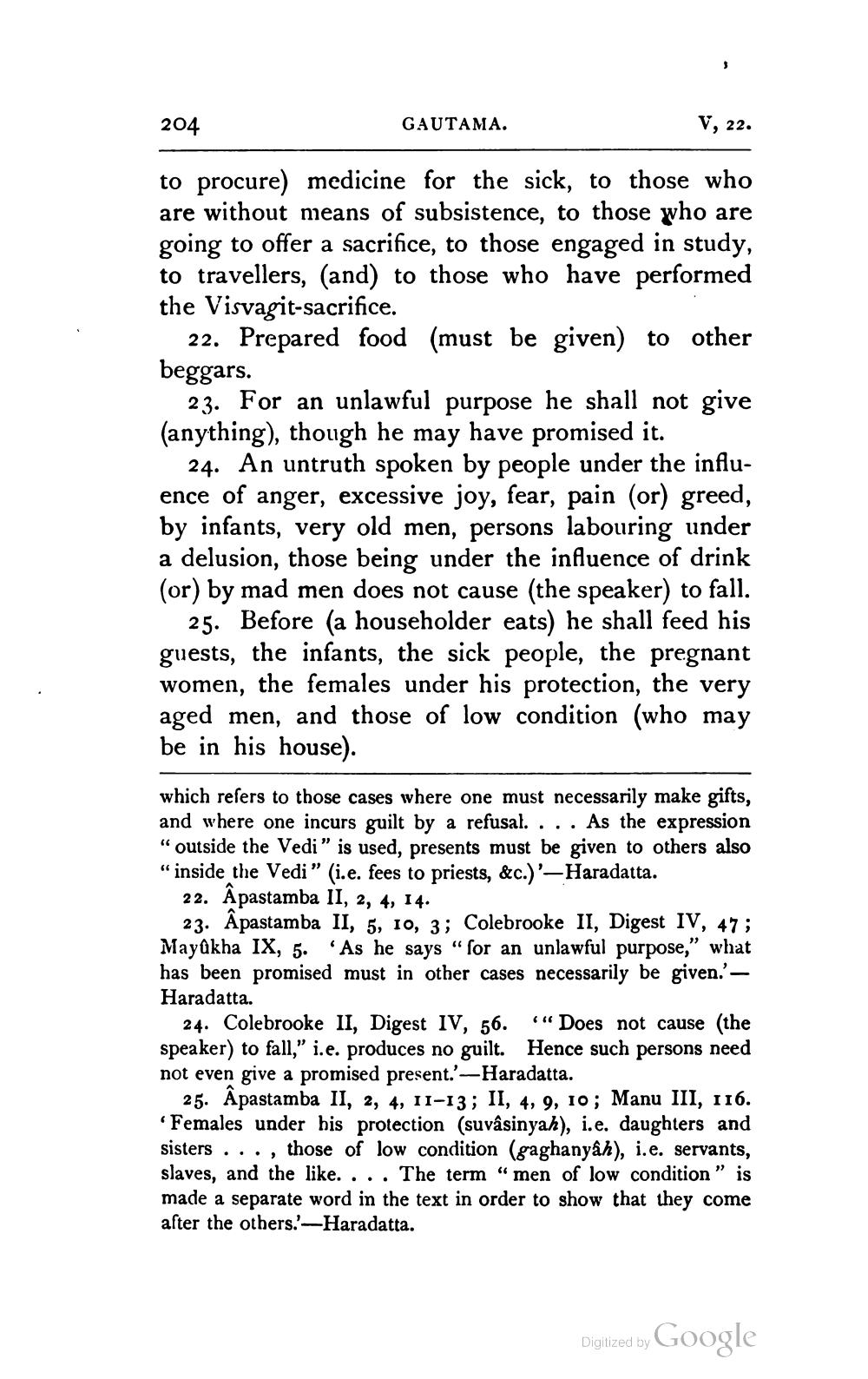________________
204
GAUTAMA.
V, 22.
to procure) medicine for the sick, to those who are without means of subsistence, to those who are going to offer a sacrifice, to those engaged in study, to travellers, (and) to those who have performed the Visvagit-sacrifice.
22. Prepared food (must be given) to other beggars.
23. For an unlawful purpose he shall not give (anything), though he may have promised it.
24. An untruth spoken by people under the influence of anger, excessive joy, fear, pain (or) greed, by infants, very old men, persons labouring under a delusion, those being under the influence of drink (or) by mad men does not cause (the speaker) to fall.
25. Before (a householder eats) he shall feed his guests, the infants, the sick people, the pregnant women, the females under his protection, the very aged men, and those of low condition (who may be in his house).
which refers to those cases where one must necessarily make gifts, and where one incurs guilt by a refusal. . . . As the expression “outside the Vedi" is used, presents must be given to others also “inside the Vedi" (i.e. fees to priests, &c.)'-Haradatta.
22. Â pastamba II, 2, 4, 14.
23. Apastamba II, 5, 10, 3; Colebrooke II, Digest IV, 47; Mayûkha IX, 5. 'As he says "for an unlawful purpose," what has been promised must in other cases necessarily be given.'Haradatta.
24. Colebrooke II, Digest IV, 56. "" Does not cause (the speaker) to fall," i.e. produces no guilt. Hence such persons need not even give a promised present.'-Haradatta.
25. Apastamba II, 2, 4, 11-13; II, 4, 9, 10; Manu III, 116. Females under his protection (suvâsinyah), i.e. daughters and sisters ..., those of low condition (gaghanyâh), i.e. servants, slaves, and the like. ... The term "men of low condition” is made a separate word in the text in order to show that they come after the others.'-Haradatta.
Digitized by Google




